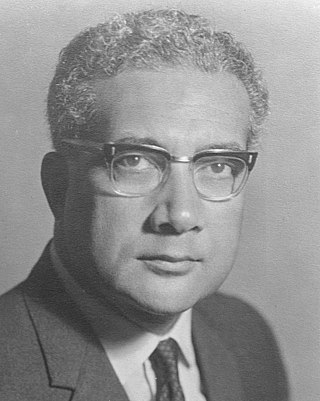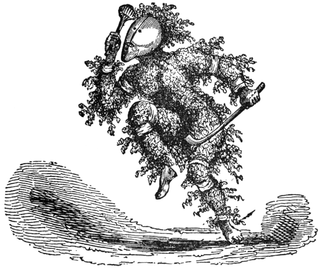Related Research Articles

RatuSir Kamisese Mara, was a Fijian politician, who served as Chief Minister from 1967 to 1970, when Fiji gained its independence from the United Kingdom, and, apart from one brief interruption in 1987, the first Prime Minister from 1970 to 1992. He subsequently served as president from 1993 to 2000.
Ratu Alifereti Finau Mara was a Fijian lawyer, politician, and diplomat. He was best known as the eldest son of former Prime Minister and President Ratu Sir Kamisese Mara. Since December 2001, he held the official position of Roving Ambassador and High Commissioner, representing Fiji's interests in Pacific Island nations. It was reported on 13 March 2006 that he had been chosen to succeed his late father as Paramount Chief of the Lau Islands, but in 2009 the succession was still unclear, with Mara reportedly refusing to discuss the issue with the village elders.

ʻEnele Maʻafuʻotuʻitonga, commonly known as Maʻafu, was a Pacific islander who held important titles in two countries in the Pacific. He was a traditional Tongan Prince and a Fijian chief nominated and installed by the Tovata chiefs of Lakeba and Vanua Balavu as 'Tui Lau' in 1869. This title was ratified by a wider council of Fijian chiefs and subsequently formalised under British colonial administration. In 1847, Maʻafu went to Fiji in an expedition to Vanua Balavu to investigate the killing of a preacher.
The Vuanirewa is the ruling tribe (yavusa) of the Lau Islands, a scattered group of more than a hundred islands and reefs along the eastern edge of Fiji.
Tui Nayau is the title held by the paramount chief of the Lau Islands in Fiji and is synonymous with the title holders over lordship of these islands. When translated, Tu’i Nayau means "Lord of Nayau", an island north of Lakeba.
Rasolo was a Fijian High Chief.
The Lau Islands of Fiji are situated in the southern Pacific Ocean, just east of the Koro Sea. Of this chain of about sixty islands and islets, about thirty are inhabited. The Lau Group covers a land area of 188 square miles, and had a population of 10,683 at the most recent census in 2007. While most of the northern Lau Group are high islands of volcanic origin, those of the south are mostly carbonate low islands.
Dranivia was an 18th-century Lauan chief and noble of the Vuanirewa dynasty. He was the third son of Uluilakeba I and last recorded member of the noble household, Naivi, to hold the title Roko Sau of the Lau Islands. He is referred to as an usurper and often oral history does not include hims as a Roko Sau. He is said to have snatched the chieftainship during the absence of his uncle Matawalu from Lakeba, and without the consent of the Vuanirewa. On hearing of his nephew's treachery, Matawalu returned from Bau and reasserted his authority, while Dranivia was touring the Southern Lau islands. Dranivia immediately returned to Lakeba which precipitated in kin slaying amongst the Vuanirewa. Dranivia was defeated and he fled with his supporters to Nayau and establishing the village of Liku.
Laufitu was a Fijian chiefess.

Lomaloma is a village at the south of the island of Vanua Balavu in the Lau archipelago of Fiji. The settlement is part of the tribal district of Tikina, Lomaloma and consists of 9 villages, 13 Yavusa (tribes), 42 Mataqali (clans), and 54 family units known as Tokatoka. The nine villages of Lomaloma Tikina are Lomaloma, Sawana, Susui, Narocivo, Namalata, Uruone, Levukana, Dakuilomaloma, and Tuvuca.
Viliame (William) Vuetasau (c.1820-1857) was a Fijian explorer who was the son of Roko Malani, the seventh Roko Sau of Lau and second Tui Nayau and Ciri of Taqalevu. During the reign of his Uncle Taliai Tupou, third Tui Nayau, he was considered heir to the title. He was the first of his noble line to be given a western name, William, after Willam Cary, survivor of the Nantucket whaling ship Oeno that was wrecked in the Lau Islands in 1825. William Cary was rescued by a brother of Malani, who in time became close friends with Malani himself, who named his son after the New Englander, demonstrating his attachment to the shipwrecked sailor.
Toki Soroaqali was a Lauan chief and member of the noble dynasty of Vuanirewa in Fiji, active in the late 1700s and early 1800s.
Roko Taliai Tupou (17??-1875) was a Fijian nobleman. He is considered to be the progenitor of the noble household Vatuwaqa in the chiefly Vuanirewa clan and as such, was the first member of this noble household to hold the title Tui Nayau. His reign marked the growth of Christianity in Lau and the slow expansion of Tongan ambitions in Fiji, led by Enele Ma'afu. As this period marked increasing contact with Europeans, records from this point forward in regard to the history of Lau are well documented.

Delailoa was a Fijian High Chief.
Sau Mai Kedekede now more commonly referred to as Sau ni Vanua ko Lau is one of the preeminent titles held by the Paramount Chief of the Lau Islands in Fiji.
Ratu Tevita Uluilakeba III was the 12th Tui Nayau and Sau ni Vanua of the Lau Islands. He was the father of Ratu Sir Kamisese Mara, founding father of the modern nation of Fiji.
Naosara was a Fijian High Chief, an ancestor of Fijian royal family. His title was Tui Nayau – "Lord of the island of Nayau."
Buivaroro was a Fijian High Chief and Lord of the island of Nayau.
Malani may refer to:
References
- 1 2 Munro 1996, p. 103.
- ↑ Thornley 2000, p. 64.
- ↑ Spurway 2015, p. 40.
- 1 2 Munro 1996, p. 93.
- 1 2 Thornley 2000, p. 63–64.
- 1 2 Spurway 2015, p. 73.
- ↑ Spurway 2015, p. 70.